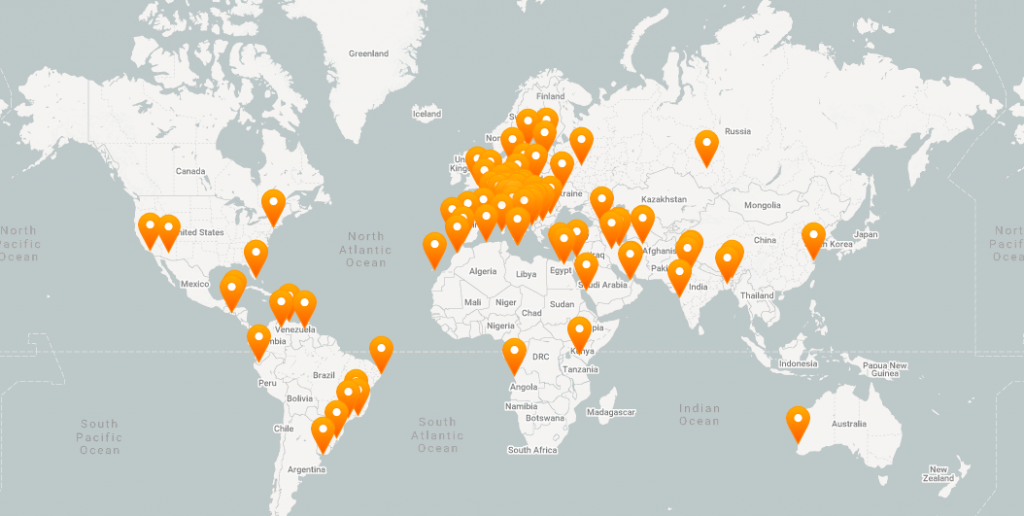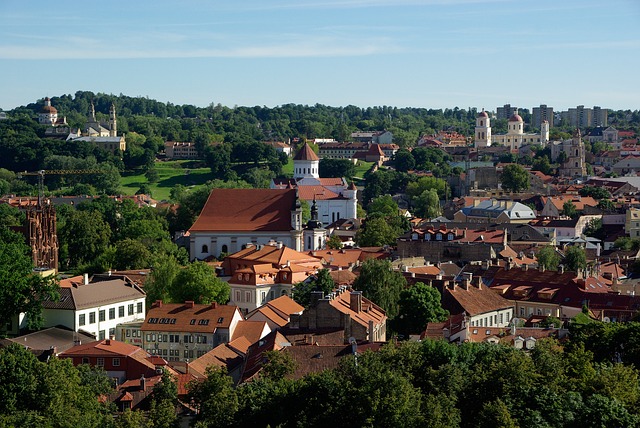Economic Overview
Lithuania is a member of the European Union and the largest economy among the three Baltic states.
It also has the highest GDP per capita in PPP.
Lithuania belongs to the group of very high human development countries. The country’s economic freedom score is 75.3, making its economy the 19th freest in the 2018 Index.
Its overall score has decreased by 0.5 point, with declines in the scores for government integrity and business freedom more than balancing improvements in investment freedom, judicial effectiveness, and fiscal health.
It is ranked 11th among 44 countries in the Europe region, and its overall score is above the regional and world averages.
Lithuania is a post-industrial society with some two-thirds of the population working in the service sector. The society is relatively egalitarian with healthcare, primary and secondary education being funded by the state.
Undergraduate, graduate, and postgraduate education is also state-funded for the better students.
Economic Key Sectors
Services
One of the most important sub-sectors is information and communication technologies (ICT). Around 37,000 employees work for more than 2,000 ICT companies. ICT received 9.5% of total FDI. 11 out of 20 biggest IT companies from Baltic countries are based in Lithuania. Lithuania exported 31% of its IT services.
Development of shared services and business process outsourcing are some of the most promising fields.
Financial Sector
The financial sector concentrates mostly on the domestic market. There are nine commercial banks that hold a license from the Bank of Lithuania and eight foreign bank branches. Most of the banks belong to international corporations, mainly Scandinavian.
Agriculture
Despite a decreased share in GDP, the agricultural sector is still important for Lithuania as it employs almost 8% of the work force and supplies materials for the food processing sector.
Lithuanian food consumption has evolved; consumption of vegetables increased by 30% to 86 kg per capita, and consumption of meat and its products increased by 23% during the same period to 81 kg per capita
Manufacturing sector
Manufacturing constitutes the biggest part of gross value added in Lithuania. More than 57,000 people were employed in food processing. The food processing sector constitutes 11% of total exports. Dairy products, especially cheese, are well known in neighboring countries.
Another important manufacturing activity is chemical products. 80% of production is exported so chemical products constitute 12.5% of total exports.
Furniture production employs more than 50,000 people and has seen double-digit growth over the last three years. The biggest companies in this field work in cooperation with IKEA, which owns one of the biggest wood processing companies in Lithuania.
Companies in the automotive and engineering sector are relatively small but offer flexible services for small and non-standard orders at competitive prices. The sector employs about 3% of the working population and receives 5.6% of FDI.
Lithuanian laser companies were among the first ones in the world to transfer fundamental research into manufacturing. Lithuania’s laser producers export laser technologies and devices to nearly 100 countries.
Tax
There are 7 main types of taxes in Lithuania:
- Corporate income tax
- Personal income tax
- Real estate tax
- Land tax
- Inheritance and gift tax
- Value added tax
- Excise duty
- Lottery and gaming tax
The state collects also social insurance contributions, taxes on state natural resources, petroleum and natural gas resources tax, tax on environmental pollution, consular fees, state fees.
Corporate Income Tax
Corporate income tax payers are enterprises pursuing commercial activities, and this tax is also paid by non-profit organizations obtaining profit from commercial activities.
The general corporate tax rate is 15%.
Personal Income Tax
Progressive reduction of the personal income tax was commenced in 2006. Today every natural person is obliged to pay the personal income tax in the amount of 15 % if this person is employed or self-employed. If the person can be considered a permanent resident, the income tax is calculated from the person’s income received in Lithuania and abroad. Foreign residents must pay tax only from that part of income which is received in Lithuania. To consider someone a resident of Lithuania, this person has to live in Lithuania for at least 183 subsequent days within a 12-month period.
Persons receiving a salary lower than LTL 191 are exempt from personal income tax. Also disabled persons and single mothers (fathers) are exempt from personal income tax, and the tax is not deducted from pensions and scholarships.
Land Tax
In Lithuania, the land tax includes only tax payments on land, and the provisions on calculation and payment of this tax are laid down by city and district councils. The object upon which the land tax is imposed is privately owned land, and its annual rate is 1.5 % of the land value (in case of a forest, the tax rate does not include the value of trees).
Excise duty
The excise duty which is envisaged to adjust the consumption of goods to be sold in the country is levied on the following products:
- ethyl alcohol, nondenatured spirit and alcoholic beverages including beer;
- smoking tobacco and tobacco products;
- coffee, chocolate and food containing cocoa;
- jewellery, gold and silver except for imitation jewellery and coins;
- motor fuel, except for aviation fuel, and diesel fuel;
- luxury cars;
- electricity;
- publications of erotic or violent nature.
The excise duty is not imposed on alcoholic beverages and their raw materials imported by state enterprises licensed to produce alcoholic beverages and on exported goods.
Inheritance tax
The amount of tax is calculated based on the value of the taxable inherited property by applying the following tax rates:
- if the value of the taxable inherited property does not exceed 0.5 million Lithuanian lita – 5 %;
- if the value of the taxable inherited property exceeds 0.5 million Lithuanian lita – 10 %.
The tax is not levied on a property inherited by a surviving spouse following the death of the other spouse, a property inherited by children (also adopted children), parents (also adoptive parents), a guardian (custodian), persons under guardianship (children taken into care), grandparents, grandchildren, siblings, and on an inherited property the taxable value of which does not exceed LTL 10,000.
Reasons to Invest in Lithuania:
- Lithuania – one of the fastest developing countries in the European Union. The country maintains a stable growth of about 3.3% per annum, which is 30 times higher than the overall EU average!
- Lithuania is a member of the Schengen area and the European Union. Since 2015, Lithuania is a member of the eurozone too.
- The Lithuanian tax environment is one of the most favorable environments for the business creation.
- Internet in Lithuania is one of the fastest in the world. Lithuanians rapidly employ new technologies and are innovative. The country was the first in the European Union and one of the world’s first countries which started using 4G Internet.
- It is a particularly urbanely evenly developed country with great infrastructure and “green” cities. The number of the employed in the food industry is almost twice higher than the national average. You can find all services and institutions necessary for a comfortable life: police, fire station, hospitals or schools even in small towns. Clean air of the region – based on the the study “European Green City Index” data from 30 European cities, the capital of Lithuania has the best air quality in Europe.
- An educated workforce – the highest educational level of the population in the European Union. 92% of working age population have higher or secondary education.
- Years of experience. All employees have the understanding of the multicultural environment specifics and many years of experience in the local and international market.
Need to know more about the business opportunities across the globe?
Send us an email and we will contact you for details!
 Prime Advisory Network covers now 57 countries in the world.
Prime Advisory Network covers now 57 countries in the world.

